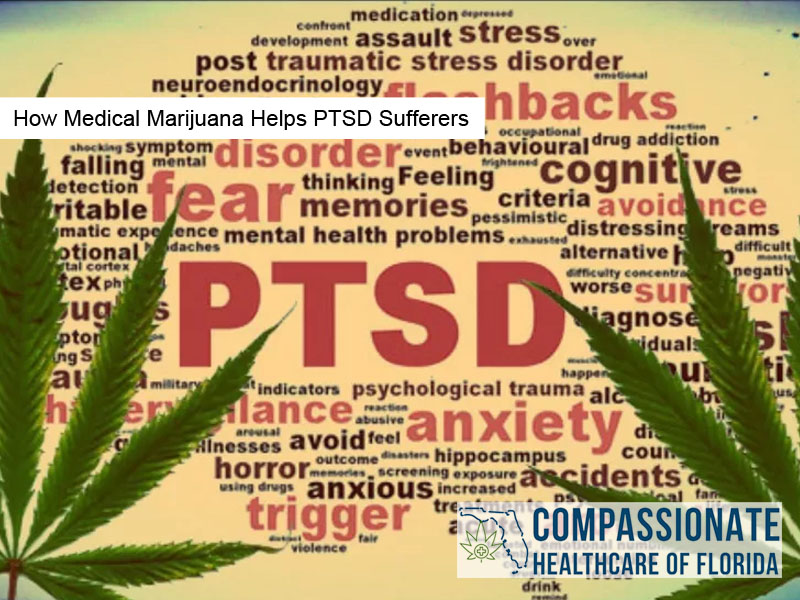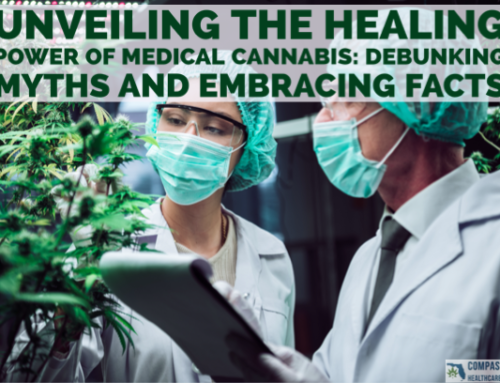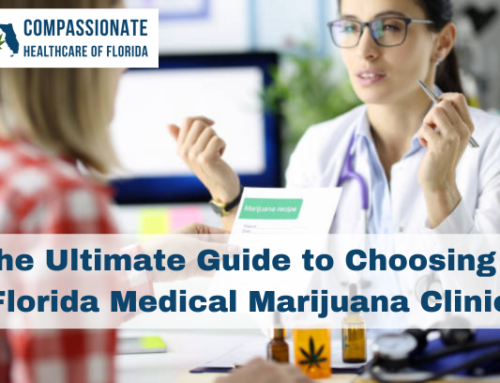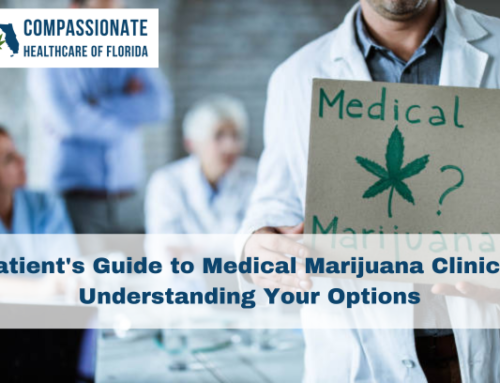 Medical Marijuana has been legalized in many parts of the United States, and for a good reason. There are many benefits to using marijuana, both physically and mentally. This article will focus on how medical marijuana helps those who have PTSD. Much evidence suggests marijuana is an effective treatment for PTSD. Let’s take a closer look at how this works.
Medical Marijuana has been legalized in many parts of the United States, and for a good reason. There are many benefits to using marijuana, both physically and mentally. This article will focus on how medical marijuana helps those who have PTSD. Much evidence suggests marijuana is an effective treatment for PTSD. Let’s take a closer look at how this works.
What is PTSD?
A type of anxiety disorder called post-traumatic stress disorder (or PTSD) is triggered by a traumatic event. There are several causes of PTSD:
- May have suffered emotional, physical, or sexual abuse as a child or adult.
- Surviving a natural catastrophe, tragic accident, terrorist act, or violence
- As a soldier or as a civilian, you can be part of combat
- Working at the scene of a disaster and being an emergency responder
- The sudden death of a close friend
Acute stress disorder (ASD) is a condition that manifests in the first month following traumatic events. A person may exhibit three or more of the following symptoms:
- Emotional numbing or detachment.
- Depersonalization
- Derealization
- Reduced awareness of the surroundings, such as being in a fog or haze
- Dissociative amnesia
These symptoms can persist or worsen after the first month. People with PTSD can experience nightmares, flashbacks to the incident, extreme mood swings or anxiety about specific activities, emotional numbing or depression, suicidal thinking, avoidance of thoughts or feelings reminiscent of the trauma, and avoidance or recollection of these symptoms. You may also experience physical symptoms such as headaches, stomach pain, cramping, changes in appetite, muscle aches, and back pain.
What Can Medical Marijuana Do For PTSD?
People with PTSD (Post-Traumatic Stress Syndrome) have been increasingly using medical marijuana as a treatment option. Although research is still limited, PTSD patients have reported that medical cannabis has many benefits, especially when it comes to anxiety and sleep disturbances.
Two of the essential PTSS factors are memory building and stress response. The endocannabinoid systems play a significant role in both. What is also known as extinction learning is a function of the brain’s CB1 receptor. This means that people can replace old memories with newer ones. Therefore, cannabis can help mask these memories to eliminate panicked reactions when you relive the memories.
It is essential to understand the effects of stressors on neurobiological processes to appreciate the mechanisms that control the development, maintenance, and treatment of PTSD. Stressful events are known to cause alterations in the functioning of the autonomic nervous system. The ANS controls involuntary bodily functions, such as breathing, heart rate, blood pressure, and digestion. These alterations can disturb homeostasis and trigger chemical imbalances. Repeated alterations in neurobiological processes over time may favor the development of psychological disorders. It is difficult to determine which stressor-provoked neurobiological processes (or their interactions) contribute to the emergence and spread of PTSD. However, the condition is likely to be biochemically related.
Although it is difficult to identify the brain processes responsible for PTSD’s development and persistence, most of the information available comes from preclinical animal studies. These studies include fear learning, threat detection, contextual processing, emotion regulation, and executive function sites. Evidence suggests that PTSD symptoms in humans result from neuronal dysfunction in the medial prefrontal cortex, anterior cingulate cortex, hippocampus, and diminished connectivity between the ventromedial prefrontal cortex (VPF) and the amygdala. Low endocannabinoid tone (eCB) contributes to amygdala hyperactivation and anxiety. Hyperarousal anxiety could also cause symptoms such as avoidance, re-experiencing, and emotional numbing. Other symptoms of PTSD, such as dissociation, are more common in females than in men. These distinctive characteristics may help determine the most effective treatment options for PTSD.
People with PTSD often use cannabis to help them sleep and report that it reduces anxiety and arousal and enhances mood. Given that eCB processes are affected by stressors that affect anxiety and fear, researchers hypothesized that eCB functioning is connected to the development of PTSD. Possibly through corticotropin-releasing hormone-mediated reduction in several brain regions. Paralleling this view, scientists maintained that pharmacological manipulations of endogenous cannabinoids could be used to treat PTSD. Like many other claims of benefits from cannabis, most of the evidence supporting this view in humans comes from observational and case studies and anecdotal evidence. However, there is little evidence that these effects are causal.
It is important to note that PTSD was associated both with an increase in expression of the cannabinoid receptor Type 1 (CB1) and a decrease in peripheral levels of eCB anandamide, as well as a compensatory rise in CB1 availability. This was due to excessive threat processing and anxious arousal. A deficiency in eCB signaling reflects PTSD’s stress endophenotype. This raises the possibility that endocannabinoid manipulatives might be useful in a therapeutic capacity.
Some studies have shown that CBD, THC, and some other components of cannabis may help with PTSD symptoms. In one small study (n = 10), 5 mg of THC twice a day as an add-on treatment enhanced sleep quality and reduced the frequency of nightmares, PTSD hyperarousal (based on the Clinician-Administered PTSD Scale), and global symptom severity. Nabilone, a synthetic analog to THC, enhanced sleep and reduced nightmares among patients. However, THC’s positive effects on PTSD are limited, leaving many symptoms unaffected. The human clinical trials showing a link between THC and PTSD in humans are also limited, with questionable results. These included varying degrees of relief from symptoms and whether the eCB link is a causal connection to PTSD or other actions related to anxiety and depression, as PTSD is often comorbid.
Here are some of the medical conditions that medical marijuana has been shown to help:
Extreme Anxiety Can Be Treated
As mentioned earlier, patients with severe anxiety may have their extinction learning function impaired. Research has shown that an impaired endocannabinoid can cause anxiety disorders such as PTSD. In these cases, medical marijuana can alleviate anxiety-related symptoms of PTSD and PTSS; such as fear, insomnia, and social anxiety. Ultimately, further research to explore medical marijuana as a sole treatment for anxiety disorders is still ongoing.
Patients Can Sleep Better
PTSS can lead to severe sleep problems, undoubtedly one of the most severe symptoms. Patients who have used medical marijuana in Florida have succeeded in improving their sleep quality, claiming medical marijuana helps them fall asleep faster. As a result, the brain can better deal with panic and anxiety when it arrives by being more rested.
Medical cannabis is known to help people experiencing rapid eye movement (REM) sleep, which is the stage of sleep when dreams occur. Other research suggests that medical marijuana helps increase slow-wave deep sleep, decreasing cortisol levels and easing anxiety symptoms in patients.
Emotional & Mental Effects
It is important to note that there are well-known side effects of consuming too much medical marijuana, which can be severe for anyone. People living with PTSD are more likely to experience these side effects. Although it doesn’t cause hallucinations or other paranormal effects, the drug can alter your perception. These alterations in perception can cause increased anxiety leading to “bad trips.”
Some other adverse effects of marijuana include:
- Enhanced senses
- Changes in mood, including depression
- Time alterations
- Problems with thinking and movement
- Memory impairment
As growers create new strains, THC (the intoxicating chemical in marijuana) has increased over the years. These days, marijuana can generate increased paranoia and higher levels of psychological dependence. Side effects aside, about 10% of marijuana users become psychologically dependent and develop an addiction of varying degrees. A common and familiar alternative to relieve anxiety comes in the form of CNS depressants called benzodiazepines. Although benzodiazepines are excellent at temporarily reducing severe anxiety for people with anxiety disorders, prolonged use of these prescription medications easily leads to severe physical dependence and dangerous withdrawals.
Triggered Stress
Traumatic events can trigger PTSD, but other mental conditions may worsen symptoms. If the person is predisposed to such problems, marijuana may trigger depression, anxiety, or psychosis.
A person with acute stress disorder might be more likely to develop PTSD if they experience a traumatic event such as a car accident or assault. Pre-existing substance abuse disorder, such as marijuana addiction, may increase your chances of developing PTSD following a traumatic event. Without drugs, the brain may not be able to balance neurotransmitter chemicals. These imbalances could result in a serotonin or dopamine deficiency, affecting mood and bodily functioning. These chemicals play vital roles in the brain’s pleasure and reward systems.
An extensive study by the US Department of Veterans Affairs examined data from 2,276 veterans who had had PTSD and used marijuana concurrently. From 1991 to 2011, results suggested that marijuana abuse was associated with higher severity of PTSD symptoms as opposed to relief. Marijuana abuse drug was also associated with greater violence and other substance use.
These results are contrary to anecdotal, which shows that symptoms of PTSD such as anxiety and insomnia can be temporarily relieved by marijuana abuse. It is essential to know that marijuana should not be used as a sole treatment. The benefits of guidance by a trained, licensed medical professional for those who have PTSD is one reason why many healthcare groups advocate for the federal legalization of marijuana for medicinal purposes.
Caution For Unguided Medical Marijuana Use
You should consult your doctor about the best delivery method, dosage, and other recommendations for relief. Millions of people have experienced great success with medical marijuana in treating Post-Traumatic conditions. As mentioned above, side effects of marijuana use can occur just like any other medications. These include decreased blood pressure and dizziness, fainting, and increased heart rate. These side effects can be severe, so consult your doctor immediately if you experience them. Studies have shown medical marijuana used simultaneously with alcohol, sedatives, hypnotics, and other mind-altering medications can increase the effects of each. Always inform your doctor about any medicines before starting medical marijuana.
Medical Marijuana Doctor in Florida
The use of medical marijuana for the treatment of PTSD is still in its infancy. Still, there are promising signs that it may be a viable treatment. If you or someone you know suffers from this debilitating mental health condition and would like to learn more about how cannabis might help, please contact Compassionate Healthcare of Florida at (833) 633-3665. Our compassionate staff will answer all your questions so you can make an informed decision on whether medical marijuana could benefit your life as well.



